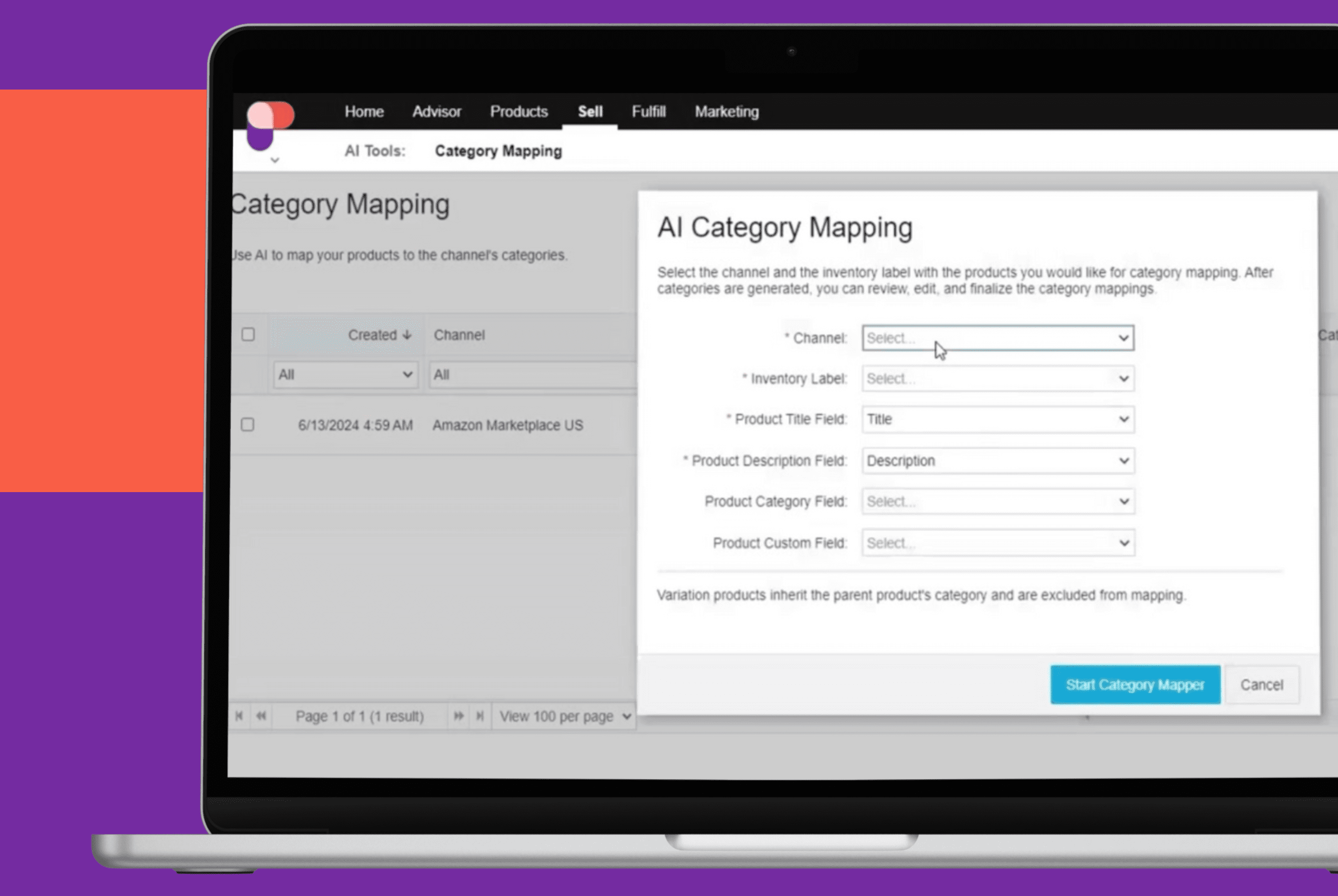Consumers are using AI tools to search for products. But many retailers don’t appear in the results.
Bots from companies like OpenAI and Perplexity crawl ecommerce sites daily for product listings, pricing, and inventory—but in many cases, they leave with outdated or incomplete data.
This blind spot isn’t random. It’s a ripple effect of Cloudflare, one of the largest internet infrastructure providers, blocking these bots by default in 2024 across more than one million websites. The move was a response to misuse and server strain. Retailers and marketplaces followed suit, updating robots.txt files to restrict or fully block bot access.
Some bots have ignored those settings. ClaudeBot, from Anthropic, has been accused of bypassing robots.txt rules and overwhelming websites with high-volume requests, while others simply run into outdated content or disorganized pages that don’t return usable product data.
As a result, when shoppers ask an AI assistant to find an item, they often receive listings that are out of stock, missing sizes, or no longer accurate.
Retailers lose visibility. Customers move on.
Shoppers expect AI to do more than search
Consumers now turn to AI tools for product advice, but they expect more than static answers. They want recommendations that reflect availability, price, and their preferences. According to Walmart’s 2025 Retail Rewired Report, shopper trust in AI product suggestions now equals trust in influencer endorsements. That shift puts pressure on brands to supply AI systems with clean, current data or risk being excluded from results.
This is agentic shopping in action. AI is no longer just helping shoppers find products; in some cases, it is already acting on their behalf. These systems can discover, evaluate, and even make purchases based on user preferences and constraints. This shift is changing how digital commerce works.
Today, most AI tools stop at product recommendation. Shoppers still need to click through to a retailer’s website to complete the purchase. But that will soon change.
In May 2025, Perplexity and PayPal announced a partnership that allows Perplexity Pro users in the United States to complete transactions directly inside the chat. The experience includes product selection, checkout, shipping, and tracking—all handled within the conversation. Product visibility depends entirely on whether the listing data is structured and current.
Bots prioritize clear product data
For now, this is only available to a limited group. Other AI platforms have not rolled out in-chat checkout; but infrastructure is starting to shift in that direction. Industry analysts expect more chat-based tools to support the full path from discovery to purchase in the near future.
If shoppers can complete a purchase inside the chat interface, product visibility depends entirely on how well the listing is structured. There is no second chance. Listings that are incomplete or out of sync with inventory will not appear.
Rithum is building toward that future. We are testing agentic shopping flows and preparing to integrate them into the product. This model is still emerging, but momentum is building. Retailers that prepare now will be ready when in-chat commerce becomes standard.
Retailers are replacing pilots with full product AI systems
Retailer teams have tested conversational tools, but the landscape has shifted quickly. There is a growing need to improve speed, reduce manual efforts, and meet demand for personalized recommendations.
Agentic AI systems across retail and logistics are expected to deliver $450 billion in value by 2028. Walmart now uses agent-based logic for everything from product search to supply chain triggers. These are not in testing mode, they are running now.
Rithum is also already powering agentic shopping today. One leading beauty brand, for example, is live with an AI search partner where product queries are answered using structured data pulled in real time from Rithum’s feed—listings that are brand-approved and conversion-ready. Without structured product data, retailers risk more than missing a trend, they risk becoming invisible in environments where shoppers are increasingly turning for product discovery. If the data isn’t formatted correctly, bots will simply not find it. Or worse, they will find the wrong information.
AI agents can’t recommend what they can’t read
AI won’t work unless the product data is organized in a way that AI agents can understand and use. Rithum has spent years building just such a structure. Our system handles dynamic product feeds across marketplaces, variants, and fulfillment models. We’ve incorporated taxonomy enrichment, templating logic, and channel-ready content at scale. The same data that powers retail listings also powers discovery through agentic AI.
By acquiring Cadeera in 2023, Rithum brought visual and contextual learning to its offers, improving classification and onboarding speed. These tools are already supporting transactions and real-time updates across our platform. More than 2.4 billion transactions flow through Rithum every day, spanning over 40,000 brands, retailers, and suppliers. Those listings don’t only appear on marketplaces, they also feed into AI systems, such as ChatGPT and Perplexity, which rely on structured inputs to generate product responses. Rithum enables intelligent systems to read, evaluate, and act on your listings without needing to scrape or guess.
Retail investment in agentic AI reflects a shift in how selling happens
AI is not in testing mode. Retailers are funding it, staffing against it, and embedding it into how products are discovered and sold. Retail AI investment reached nearly $9 billion in 2025. These budgets are not focused on standalone bots or fringe use cases. They’re going forward with demand forecasting, product data cleanup, and faster content distribution across selling channels.
Agentic tools and product recommendations now account for one-fifth of all ecommerce AI discussion—more than topics like loyalty, checkout, or personalization, according to Quid’s 2025 AI report.
This is happening while shoppers are no longer relying on brand-owned DTC websites or traditional search. Instead, consumers are increasingly asking AI assistants to do the searching for them. DHL’s latest global ecommerce report found that 70% of consumers want retailers to offer AI-powered shopping features, particularly inside social feeds, private search engines, and chat interfaces. 37% of global shoppers—and nearly half of social commerce users—said they want the AI experience to be voice-activated and hands-free.
You can already see this play out across the channels shoppers use most. Shoppers use chat-based tools, private search engines, and social commerce feeds like TikTok and Instagram to find what they need. These systems rely on structured product data to surface listings. When a feed is incomplete or outdated, the system skips over that listing.
Agentic AI is already deciding which products your shoppers see
Consumers using AI tools care about one thing: getting the right answer. They won’t know whether the product data came from your site or a competitor’s. What matters is that the response is accurate, in stock and ready to buy. That decision happens before a shopper visits your site. If the data isn’t available or reliable, your products will not appear.
Incomplete product data and outdated availability remain two of the biggest barriers to visibility in AI-assisted shopping tools and search engines, according to Search Engine Land’s 2025 report.
Rithum addresses this by supplying structured product data feeds that AI systems can read without scraping. Pricing, inventory, sizing, and variant information stay current. When a shopper asks for a product, they see real listings with real availability. That accuracy improves visibility and helps retailers have a better chance to convert the sale.
The same product data that AI tools use also supports how merchandising teams manage listings, reduce returns, and improve campaign results. When details are accurate and current, shoppers see the right information. Teams spend less time fixing errors, and more time making decisions that drive sales. Accurate data helps prevent returns, keeps promotions on track and improves how products show up across channels.
At the same time, major platforms are taking notice of how agentic AI interacts with merchant data. Shopify recently added language to merchant storefronts cautioning AI bots not to complete transactions without a human review step. The update appears across Shopify-powered sites in the robots.txt file and reflects growing concern over unapproved scraping and checkout automation. While Amazon and Walmart continue to expand agent-style shopping tools, Shopify is setting early boundaries. This divide underscores the importance of delivering structured data through authorized, retailer-controlled channels rather than relying on bots to guess, scrape, or interpret.
How Rithum is helping you adapt to agentic AI
At Rithum, we have built agentic capabilities into the platform itself. We support thousands of brands across hundreds of channels, which gives us a broad view into how product data performs and where improvements are needed.
The focus is on accuracy, control, and performance. We give teams reliable tools to improve decisions, manage data more effectively, and drive better results. These tools go beyond product discovery and building Agent-to-System workflows, and do more than surface insights. They take action by correcting order issues, identifying low-performing SKUs, and recommending real-time merchandising updates.
Agentic AI now plays a direct role in product discovery. Brands that want to compete need to manage their data with the same precision they bring to marketing or logistics. The use of AI is gaining momentum every day and agentic shopping is just another function that makes your life easier. It is the future. Think of it as your research assistant, sales associate and cashier all in one. AI will help you find the exact product you’re looking for and help purchase it for you—an all-in-one shopping experience that takes most of the work from you. Want to learn more? Schedule a demo today.
Beth Chandler is Senior Product Manager of Retail Media, Digital Marketing and Feeds at Rithum.




